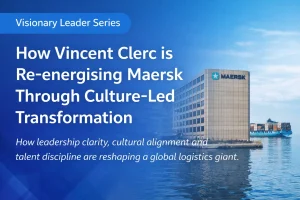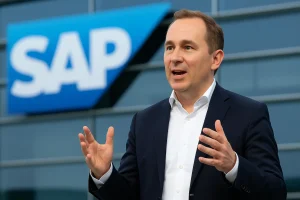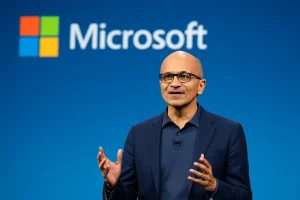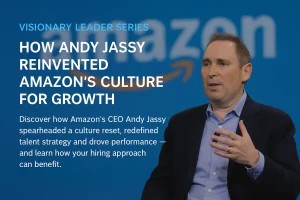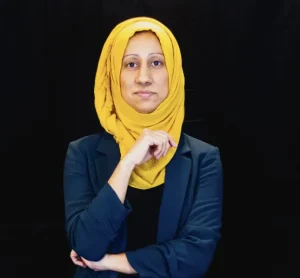“Mastering the three golden rules for executive success has become essential for senior executives who must demonstrate strategic value, leadership presence, and organizational impact during high level evaluation processes. In today’s competitive executive landscape, mastering the three golden rules of interview excellence transforms exceptional candidates into strategic leaders who command respect, demonstrate value, and secure their position as the right person for the job through sophisticated preparation and executive presence.”
The contemporary executive job interview represents far more than a traditional evaluation process—it serves as a strategic negotiation between high-caliber professionals and organizations seeking transformational leadership. Understanding and implementing the 3 golden principles of interview excellence enables senior executives to navigate these complex interactions with confidence, while positioning themselves as indispensable assets capable of driving organizational success and stakeholder value creation.
The evolution of executive recruitment has fundamentally altered the landscape of senior-level hiring, where traditional rules of interview etiquette must be elevated to meet the sophisticated expectations of board members, hiring managers, and C-suite executives. Today’s discerning employers expect candidates to demonstrate not only technical competence but also strategic vision, leadership acumen, and the executive presence necessary to navigate complex organizational challenges while delivering measurable results.
These golden rules of executive interview mastery transcend conventional wisdom to address the nuanced requirements of senior leadership positions, where every interaction contributes to the comprehensive assessment of a candidate’s capacity to drive organizational transformation. Whether you’re pursuing a CEO position, board appointment, or other executive role, understanding these strategic principles will enable you to shine during critical evaluation moments while establishing yourself as the definitive choice for leadership excellence.
The strategic implementation of these principles requires sophisticated preparation, executive-level communication skills, and the ability to demonstrate value creation potential throughout every phase of the interview process. By mastering these essential competencies, executive candidates can confidently navigate even the most challenging evaluation scenarios while maintaining the professional gravitas expected of senior leadership positions.
Strategic Foundation: Comprehensive Research and Executive Preparation
The foundation of executive interview success rests upon comprehensive research and strategic preparation that extends far beyond surface-level company information to encompass market analysis, competitive positioning, and stakeholder dynamics. Distinguished executive candidates recognize that thorough preparation enables them to engage in sophisticated strategic discussions while demonstrating the analytical rigor and market awareness essential for senior leadership effectiveness.
Contemporary executive recruitment demands candidates who possess deep understanding of industry trends, regulatory environments, and competitive landscapes that influence organizational strategy and performance. The insightful executive candidate leverages this comprehensive knowledge to craft responses that demonstrate strategic thinking while positioning themselves as valuable assets capable of navigating complex business challenges and driving sustainable competitive advantage.
The strategic approach to interview preparation requires executives to analyze not only the target organization but also its position within broader market contexts, enabling them to provide insightful perspectives on growth opportunities, competitive threats, and strategic initiatives that may influence organizational direction. This level of preparation distinguishes exceptional candidates from their peers while demonstrating the strategic acumen essential for executive leadership success.
Executive-level preparation encompasses comprehensive analysis of financial performance, market positioning, and strategic challenges that enable candidates to engage meaningfully with board members and senior executives during evaluation processes. The ability to demonstrate sophisticated understanding of organizational dynamics while providing strategic insights creates powerful differentiation that establishes candidates as serious contenders for senior leadership positions.
Market Intelligence and Strategic Analysis
The sophisticated executive candidate approaches job interview preparation with the same rigor applied to strategic planning initiatives, conducting comprehensive market analysis that enables them to understand competitive dynamics and industry trends that may influence organizational strategy. This analytical approach demonstrates the strategic thinking capabilities essential for executive leadership while providing valuable context for meaningful engagement with senior stakeholders.
Understanding the company’s competitive position, market challenges, and growth opportunities enables executive candidates to craft responses that demonstrate strategic awareness while positioning themselves as valuable advisors capable of contributing to organizational success. The ability to ask questions that reflect sophisticated market understanding creates powerful differentiation while establishing credibility with experienced interviewers who expect executive-level strategic thinking.
Comprehensive preparation includes analysis of recent financial performance, strategic initiatives, and market developments that may influence organizational direction, enabling candidates to engage in sophisticated discussions that demonstrate their capacity to contribute meaningfully to strategic decision-making processes. This level of preparation reflects the analytical rigor expected of senior executives while positioning candidates as strategic partners rather than merely qualified applicants.
The executive candidate who invests in thorough market research and competitive analysis demonstrates the commitment to excellence and strategic thinking that organizations seek in senior leadership positions. This preparation enables them to provide valuable insights during interview discussions while establishing themselves as the right person to navigate complex strategic challenges and drive organizational transformation.
Executive Presence: Demonstrating Strategic Leadership and Professional Excellence
Executive presence represents the sophisticated combination of confidence, strategic communication, and professional gravitas that distinguishes senior leaders from other candidates during evaluation processes. The ability to demonstrate executive presence requires sophisticated understanding of body language, communication dynamics, and stakeholder management that enables candidates to command respect while engaging meaningfully with board members and senior executives throughout the interview process.
Contemporary executive interviews demand candidates who can articulate complex strategic concepts with clarity and conviction while maintaining the professional demeanor expected of senior leadership positions. The sophisticated executive candidate recognizes that every aspect of their presentation—from attire to communication style—contributes to the overall impression formed by evaluators who expect exceptional standards of professional excellence and executive competence.
The strategic approach to executive communication during interviews requires candidates to balance confidence with humility, demonstrating their capacity to lead while acknowledging the collaborative nature of senior executive roles. This sophisticated communication style enables candidates to establish credibility with experienced interviewers while positioning themselves as effective leaders capable of building consensus and driving organizational change.
Executive candidates must possess the ability to engage in strategic discussions that demonstrate their understanding of complex business challenges while providing insights that reflect sophisticated analytical capabilities and market awareness. The capacity to ask questions that reveal strategic thinking while engaging meaningfully with senior stakeholders creates powerful differentiation that establishes candidates as serious contenders for leadership positions.
“The exceptional executive candidate transcends traditional interview performance to become a strategic partner in organizational visioning, demonstrating the sophisticated leadership capabilities and market awareness that transform interviews into collaborative strategic discussions.”
Strategic Communication and Stakeholder Engagement
The art of executive communication during interviews requires sophisticated understanding of stakeholder dynamics and the ability to tailor messaging to diverse audiences while maintaining consistency in strategic positioning. Executive candidates must possess the communication skills necessary to engage effectively with board members, hiring managers, and other senior leaders who evaluate candidates based on their capacity to influence organizational direction and drive performance improvement.
Maintaining appropriate eye contact while demonstrating active listening capabilities enables executive candidates to establish meaningful connections with interviewers while conveying the interpersonal skills essential for senior leadership effectiveness. The ability to engage in sophisticated dialogue while demonstrating enthusiasm for strategic challenges creates powerful impressions that distinguish exceptional candidates from their peers during evaluation processes.
Executive body language must reflect confidence and strategic thinking while conveying the professional presence expected of senior leadership positions. The sophisticated candidate understands that non-verbal communication contributes significantly to the overall evaluation process, requiring careful attention to posture, gesture, and demeanor throughout interview interactions with senior stakeholders.
The capacity to ask questions that demonstrate strategic insight while revealing sophisticated understanding of organizational challenges enables executive candidates to position themselves as valuable advisors capable of contributing meaningfully to strategic planning and organizational transformation initiatives. This approach transforms traditional interview dynamics into collaborative strategic discussions that benefit both candidates and organizations.
Strategic Value Proposition: Articulating Executive Competencies and Leadership Impact
The sophisticated executive candidate approaches interview discussions as opportunities to articulate their strategic value proposition while demonstrating the leadership competencies and market knowledge that distinguish them from other applicants. This requires the ability to translate complex experiences into compelling narratives that illustrate their capacity to drive organizational transformation while delivering measurable results for stakeholders and shareholders.
Executive resume development and presentation during interviews must reflect sophisticated understanding of strategic positioning and value creation that enables candidates to communicate their unique strengths effectively. The ability to connect past achievements with future potential while demonstrating alignment with organizational objectives creates powerful differentiation that establishes candidates as strategic assets capable of driving sustainable competitive advantage.
The strategic executive recognizes that answering questions during interviews requires sophisticated understanding of organizational dynamics and the ability to provide responses that demonstrate both technical competence and strategic vision. This balanced approach enables candidates to address specific evaluation criteria while positioning themselves as transformational leaders capable of navigating complex business challenges.
Contemporary executive recruitment processes often include multiple evaluation stages that require candidates to demonstrate consistent messaging and strategic positioning across diverse stakeholder groups. The ability to maintain professional excellence while adapting communication styles to different audiences reflects the sophisticated leadership capabilities essential for senior executive success in complex organizational environments.
Performance Metrics and Value Demonstration
Executive candidates must possess the ability to articulate specific performance metrics and value creation achievements that demonstrate their capacity to drive organizational success while managing complex stakeholder relationships. The sophisticated approach to performance presentation requires candidates to connect individual achievements with broader organizational objectives while illustrating their understanding of strategic value creation and competitive positioning.
The ability to demonstrate measurable impact through sophisticated storytelling enables executive candidates to establish credibility with experienced interviewers while positioning themselves as results-oriented leaders capable of delivering sustainable performance improvement. This approach transforms traditional qualification discussions into strategic value propositions that resonate with senior stakeholders and board members.
Sophisticated executive candidates understand that questions at the end of interview sessions provide critical opportunities to reinforce their strategic value proposition while demonstrating continued interest in organizational success. The ability to craft insightful questions that reveal strategic thinking while providing value to interviewers creates lasting impressions that distinguish exceptional candidates from their peers.
The strategic executive leverages questions at the end of evaluation sessions to explore organizational challenges and opportunities while positioning themselves as collaborative partners capable of contributing meaningfully to strategic planning and organizational transformation initiatives. This approach demonstrates the executive presence and strategic thinking capabilities essential for senior leadership effectiveness.
Executive Decision-Making: Navigating Complex Evaluation Scenarios
The contemporary executive interview process often includes complex scenario-based evaluations that require candidates to demonstrate sophisticated decision-making capabilities while navigating ambiguous business challenges. The ability to assess complex situations quickly while providing strategic insights that reflect market awareness and leadership experience distinguishes exceptional executive candidates from their peers during these challenging evaluation components.
Executive candidates must possess the analytical capabilities necessary to evaluate complex business scenarios while communicating their strategic thinking process clearly and convincingly to experienced interviewers. This requires sophisticated understanding of risk management, stakeholder dynamics, and strategic planning that enables candidates to provide valuable insights while demonstrating their capacity to navigate organizational challenges effectively.

The strategic approach to scenario-based interview components requires candidates to balance analytical rigor with strategic intuition while demonstrating the leadership capabilities necessary to drive organizational change. The ability to articulate decision-making frameworks while acknowledging complexity and uncertainty reflects the sophisticated executive thinking that organizations seek in senior leadership positions.
Contemporary executive evaluation processes increasingly emphasize candidates’ capacity to manage stakeholder relationships and navigate organizational politics while maintaining focus on strategic objectives and performance outcomes. The sophisticated executive candidate demonstrates these capabilities through thoughtful responses that reflect understanding of organizational dynamics and strategic leadership requirements.
Strategic Risk Assessment and Opportunity Identification
Executive candidates must demonstrate sophisticated understanding of risk management and opportunity assessment that enables them to provide valuable strategic insights during complex evaluation scenarios. The ability to identify potential challenges while articulating strategic solutions reflects the analytical capabilities and market awareness essential for senior leadership effectiveness in competitive business environments.
The sophisticated executive recognizes that effective risk assessment requires comprehensive understanding of market dynamics, regulatory environments, and competitive landscapes that influence organizational strategy and performance. This knowledge enables candidates to provide insightful perspectives on strategic challenges while positioning themselves as valuable advisors capable of navigating complex business environments.
Contemporary executive interviews often include discussions of strategic opportunities that require candidates to demonstrate their capacity to identify growth potential while managing associated risks effectively. The ability to articulate sophisticated strategic frameworks while maintaining focus on stakeholder value creation distinguishes exceptional candidates from their peers during these evaluation processes.
The strategic executive leverages their understanding of market trends and competitive dynamics to provide valuable insights during interview discussions while demonstrating their capacity to contribute meaningfully to organizational strategy and performance improvement initiatives. This approach establishes candidates as strategic partners rather than merely qualified applicants for senior leadership positions.
Post-Interview Strategy: Reinforcing Executive Value and Strategic Interest
The sophisticated executive candidate recognizes that the interview process extends beyond face-to-face interactions to encompass strategic follow-up communications that reinforce their value proposition while maintaining professional engagement with key stakeholders. The ability to craft compelling thank you letters and follow-up communications that demonstrate continued interest while providing additional value reflects the strategic thinking and professional excellence expected of senior leadership positions.
Executive-level followup communications must balance professionalism with strategic insight while maintaining the sophisticated tone appropriate for senior stakeholder engagement. The ability to reference specific interview discussions while providing additional strategic perspectives demonstrates the analytical capabilities and market awareness that distinguish exceptional candidates from their peers during competitive evaluation processes.
The strategic approach to post-interview engagement requires candidates to maintain visibility with key decision-makers while respecting organizational processes and timelines. This sophisticated balance reflects the executive judgment and stakeholder management capabilities essential for senior leadership effectiveness while positioning candidates as strategic partners committed to organizational success.
Contemporary executive recruitment processes often involve extended evaluation timelines that require candidates to maintain strategic engagement while demonstrating patience and professional respect for organizational decision-making processes. The ability to navigate these complex dynamics while maintaining strategic positioning reflects the sophisticated leadership capabilities essential for executive success.
Strategic Relationship Building and Stakeholder Management
The exceptional executive candidate leverages post-interview communications to build strategic relationships with key stakeholders while demonstrating their commitment to organizational success and stakeholder value creation. This approach requires sophisticated understanding of organizational dynamics and the ability to engage meaningfully with diverse stakeholder groups while maintaining consistent strategic messaging.
Strategic follow-up communications provide opportunities for executive candidates to reinforce their understanding of organizational challenges while demonstrating their capacity to contribute meaningfully to strategic planning and performance improvement initiatives. The ability to provide additional insights while maintaining professional boundaries reflects the executive judgment essential for senior leadership effectiveness.
The sophisticated executive recognizes that effective stakeholder management requires consistent communication and strategic positioning that reinforces their value proposition while respecting organizational processes and decision-making timelines. This balanced approach demonstrates the interpersonal skills and strategic thinking capabilities that organizations seek in senior leadership positions.
Executive candidates who excel in post-interview engagement demonstrate the relationship-building capabilities and strategic thinking essential for organizational success while positioning themselves as valuable assets capable of driving transformation and competitive advantage. This sophisticated approach to stakeholder management reflects the executive excellence that distinguishes exceptional leaders from their peers.
“The strategic executive transforms traditional interview processes into collaborative partnerships that demonstrate value creation potential while establishing the foundation for transformational leadership and organizational excellence.”
Executive Excellence: Synthesizing Strategic Leadership and Interview Mastery
The mastery of executive interview excellence requires sophisticated integration of strategic thinking, professional presence, and stakeholder management capabilities that enable candidates to navigate complex evaluation processes while positioning themselves as transformational leaders. The three golden rules of executive interview success provide a comprehensive framework for achieving this level of professional excellence while demonstrating the strategic leadership capabilities essential for senior executive success.
The contemporary executive job search landscape demands candidates who possess not only technical competence but also the strategic vision and leadership presence necessary to navigate complex organizational challenges while driving sustainable competitive advantage. The sophisticated implementation of these golden rules enables executive candidates to differentiate themselves meaningfully while establishing credibility with experienced interviewers and stakeholders.
Executive candidates who master these strategic principles position themselves as the right person for senior leadership roles while demonstrating the sophisticated capabilities and market awareness that distinguish exceptional leaders from their peers. The ability to integrate comprehensive preparation, executive presence, and strategic follow-up creates powerful differentiation that establishes candidates as valuable assets capable of driving organizational transformation.
The strategic executive recognizes that interview excellence represents just one component of broader leadership development and career path management that requires continuous learning and adaptation to evolving market conditions and organizational expectations. The commitment to professional excellence and strategic thinking that characterizes exceptional executive candidates reflects the dedication to continuous improvement essential for sustained leadership success.
These important rules of executive interview mastery provide the foundation for strategic leadership development while enabling candidates to navigate complex evaluation processes with confidence and professional excellence. The sophisticated candidate who implements these principles effectively positions themselves for long-term success while contributing meaningfully to organizational strategy and stakeholder value creation.
The journey toward executive excellence requires commitment to strategic thinking, professional development, and continuous improvement that enables leaders to adapt effectively to evolving business environments while maintaining the highest standards of performance and integrity. The mastery of these golden rules represents a critical component of this developmental journey while providing the foundation for transformational leadership and organizational success. Good luck in your pursuit of executive excellence and strategic leadership impact.


